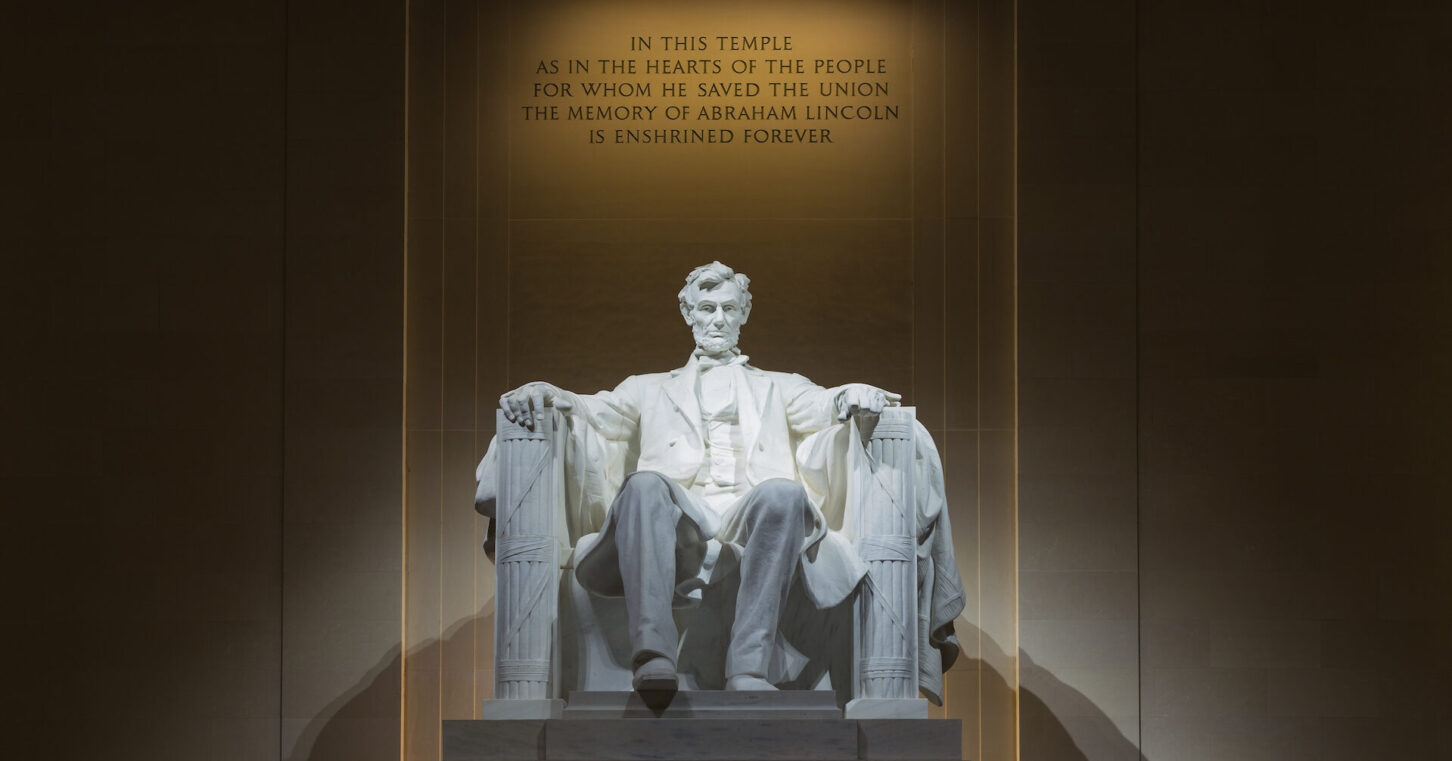
Americans are accustomed by now to hearing, and maybe even believing, that the stakes are higher than ever. But is it true this time?
During a recent visit to our nation’s capital, the tone was markedly more worried than usual. There are rifts internally and externally. Allies and agreements once taken for granted no longer seem given. Elections at home and wars abroad will do that.
But fortunately, Washington is not only a city of nattering nabobs of negativity, however accurate they may be. It is also a place where hope and resolve dot the built environment.
A walk among our national monuments is good for the American’s soul and psyche alike.
So, during a break, I took such a walk on a beautiful afternoon. Here is some wisdom I found.
“With malice toward none, with charity for all …”
The Lincoln Memorial, as one might expect, displays the Gettysburg Address. The world has greatly noted and long remembered what Lincoln said there, and the dead in those fields did not die in vain. But a speech he gave less than four months later truly resounds today.
Our 16th president delivered his Second Inaugural Address with the Union’s victory tantalizingly close. Those remarks, another study in brilliant brevity, speak to the healing of a great rift.
“With malice toward none, with charity for all, with firmness in the right as God gives us to see the right, let us strive on to finish the work we are in, to bind up the nation’s wounds … to do all which may achieve and cherish a just and lasting peace among ourselves and with all nations.”
There’s more than a hint of malice in many impassioned speeches today, and an absence of charity toward differing opinions. Reversing those would do wonders.
“It is not new and it is not order.”
The violence we observe in distant lands – and occasionally at home – is not the product of freedom on the march. The common thread among the Russia of Putin, the Gaza of Hamas and the China of Xi is that they deny either the distinctiveness of another people, or that people’s right to self-determination.
In this respect, they are heirs to the Germany of Hitler – about which Franklin Roosevelt was speaking on March 15, 1941. The following partial quotation is emblazoned on his memorial:
“They (who) seek to establish systems of government based on the regimentation of all human beings by a handful of individual rulers … call this a new order. It is not new and it is not order.”
Our own debate over overseas actors can become ensnared in detail and blame-laying. These weeds obscure the essential truth that in all three cases, authoritarians seek the regimentation of others under their own rule. The good news? The German people became our friends – but only after the end of their despotic regime.
“… institutions must advance also to keep pace with the times.”
A common theme during my trip, but also for the past several years, is that our nation’s institutions have not adapted to fit a changing society. Our social breakdowns follow from this inertia.
Civil society needs strong institutions within the government, and between the government and its citizens. Jefferson was speaking about the former, but as an advocate for a limited central government he also surely agreed with the latter.
“(L)aws and institutions must go hand in hand with the progress of the human mind. As that becomes more developed, more enlightened, as new discoveries are made, new truths discovered and manners and opinions change, with the change of circumstances, institutions must advance also to keep pace with the times.”
America is long overdue for some advancement of our institutions to accommodate changed manners and opinions – both within and without the government.
There is real wisdom to be found in the past, if we know where to look. In these cases, the past’s wisdom is monumental.